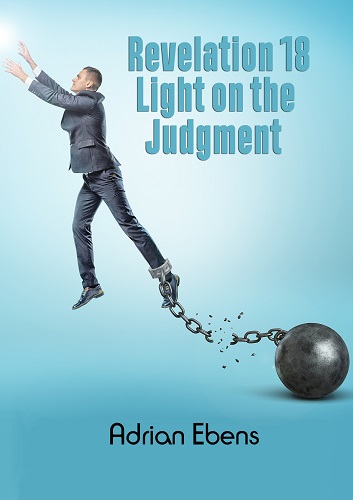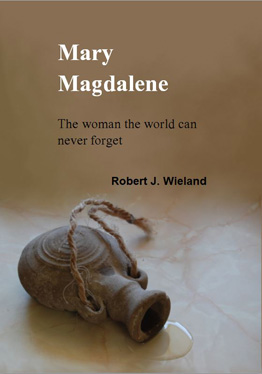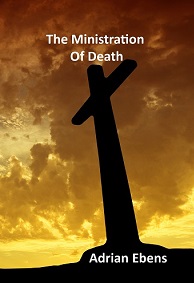BRC Evalutation of Return of Elijah - Aug 25 2008
Here is the written evaluation of my manuscript the return of Elijah dated 25th August 2008
Evaluation of document by Adrian Ebens entitled “The Return of Elijah.”
[Download final manuscript here]
By the Biblical Research Committee of the South Pacific Division
Preamble
The Biblical Research Committee of the South Pacific Division has from pastor Adrian Ebens received a major manuscript entitled “The Return of Elijah” for evaluation. First received in the latter part of 2007, the manuscript has undergone some revisions in the period it has been assessed by the committee, and some of the reading responses the committee has received deal with a previous version of the manuscript. None of the revisions has, however, in any major way changed the basic thesis and line of argumentation.
“The Return of Elijah” is an ambitious and rather large document. The manuscript is systematic in its intention and deals with a broad range of issues related to Christian and Adventist doctrine. At the same time it refers to, builds on, or assumes interpretations of a vast number of biblical texts as well as quotations from Ellen G White. The committee has, therefore, gathered advice and assessments from several Seventh-day Adventist readers outside of the committee and has given its members appropriate time to study it. The Field Secretary has met face-to-face with Adrian Ebens on two occasions and sought further clarification of the views presented.
Introduction
AE aims to establish a paradigm which he believes functions as a basis for all theological thinking. This paradigm is a system of value and equality which takes its starting point in human family relations as AE understands the Bible to describe them, and which delineates an authority structure to be found in both human relationships and internally in the Godhead. On the basis of this paradigm AE gives an asessment of a number of theological areas of specific significance for Seventh-day Adventist theology. AE believes that understanding and applying this paradigm will solve a number of the questions still being discussed, spanning such topics as justification and salvation, the role of women in home and church, and the Godhead or the Trinity.
While the views of AE in several of these areas may be somewhat controversial, the positions in regard to the Trinity seem to conflict openly with the official statements of Seventh-day Adventist beliefs. The Son is understood as eternally subordinate to the Father, and the distinct personhood of the Holy Spirit seems questioned.
Though subordinate, the equality of the Son to the Father is, according to AE, not in question. His paradigm ensures in his view equal value in spite of different authority. So, in AE’s thesis it becomes a major issue on what basis someone is accepted as equal. AE here distinguishes between “performance” based and “relational” based equality, implying that the Son is accepted as or receives his divinity on the basis of his relation to the Father, and is thus equal in value—similarly, women in the gender relation receives blessings through men through relationship, not performance, and exactly for that reason still have the same value.
Uncertanties and Lack of Clarity
Much of “The Return of Elijah” is written in notes form rather than as an essay or scholarly paper. This is one reason that several readers have found it difficult at times to be sure of the exact meaning or position of AE on several questions. This uncertainty is heightened by a general lack of references and minimal interaction with not least other SDA scholars who have presented careful arguments on a number of the issues and most of texts referred to by AE.
It remains an open question to many readers, for instance, whether AE believes the Son had a beginning. Though never saying that, the way several quotes from Ellen White is used, along with the general language, may leave that impression. If not, AE’s position would be closer to the concept of “eternal generation.” The exact theological position of AE on the nature of the Holy Spirit also leaves a number of uncertainties.
A number of other uncertainties could illustrate the need for clarification. What is actually meant, for instance, by the “flow” and channeling of “blessing?” This plays an import role in AE’s thesis, but how are the “blessings” and their channeling understood? The manuscript lacks a clear definition, a study of the biblical basis, and a discussion of the different views of “blessing” and the way it is received.
Further, the connection between the paradigm and various issues are often very difficult to discern. The manuscript consequently often leaves the impression of taking the thesis for granted and to resolve to a reference to the paradigm whenever there is no specific argument to justify the conclusion.
The Premise and Its Implications
The Biblical Research Committee questions the very premise of AE’s thesis. When faced with the biblical texts which explicitly call Jesus “God”, and the permeating New Testament testimony identifying Jesus with Jahveh, the first question to ask is not the question of equality, but the the question of divinity. The issue is not what grounds we as humans accept the equality of Jesus with God. The question is, what the Bible means with “God.”
This difference in starting point determines everything. While the Church understands God to be revealed in Jesus Christ as described in the Bible, and therefore takes that divine self-revelation in Christ as its starting point, AE begins with a reflection on human relations and equality. By making that choice, AE has predetermined the outcome because he has taken for granted that divinity is something the Son somehow receives. By choosing this starting point, AE has assumed what he is supposed to prove.
AE’s paradigm thus view God from a human perspective and imposes anthropology on theology. The approach therefore tends to become reductionist and limiting God when describing him in human terms. While AE may claim that his understanding of anthropology is derived from the Scriptures, the committee finds little exgetical substantiation for that claim.
Exegesis and Text Reading
The Biblical Research Committee finds the exegesis and application of both biblical texts and quotations from Ellen G White generally lacking from close reading and consideration of historical context. Interaction with many well prepared studies alos by SDA scholars are missing.
As a consequence, texts seems applied through a filter where AE’s thesis is already presupposed, and rather inferred by conjectures and imposed upon the Bible than deduced from the Bible. In general, the committee lacks a clear “thus saith the Lord” to support the thesis and the value system proposed with its authority structure and concept of blessing flow. Neither is it clearly confirmed by quotations from Ellen G White.
Conclusions
The Biblical Research Committee of the South Pacific Division does not find the thesis contained in “The Return of Elijah” to be new light. In its estimation it creates more problems than it solves.
1. Its starting point is a philosophically based anthropology rather than God’s self-revelation in Christ as described in Scripture.
- As a consequence, the document does not ask what the Bible means when it identifies Jesus as God, but rather on what basis we as humans come to accept him as equal to God.
The thesis thereby assumes what is to be proved.
2. The thesis is not substantiated by proper exegesis, enounciated by a clear “thus saith the Lord”, or confirmed by Ellen G White.
- Throughout, the document lacks any serious interaction with scholarship and other biblical studies, whether Seventh-day Adventist or not.
3. The conclusions of the manuscript which questions the truthfulness of the fundamental beliefs of the Seventh-day Adventist Church in regard to the doctrine of the Trinity, the co-eternal divinity of Jesus and the distinct personhood of the Holy Spirit in particular can for these reason not be sustained.
Recommendations
On the basis of the above assessment, the Biblical Research Committee issues the following recommendations.
We recommend Adrian Ebens:
1. Not to present the positions expressed in “The Return of Elijah” regarding the Godhead to the Church in general
- Not to pursue this line of thinking further
2. In interaction with Adventist and other scholars to re-study many of the questions and seek an assessment of the textual biblical basis for a number of the claims made
- Including the establishing of the value paradigm, the proposed structure of families and “flow of blessing” theory, and a number of texts used throughout the document
3. To develop in interaction with Adventist and other thinkers more clear definitions of the paradigms of performance or relationally based value, including a methodology for its usage and possible limitations
- Find a venue to present some of the ideas to other scholars
4. Develop further trust in Adventist scholarship and the spiritual gifts and authority God has entrusted to and the corporate Church has recognized in our scholars
We recommend to SPD administration:
5. To continue the policy followed now throughout a number of years, of creating safe venues for open theological discussion, pursuit and evaluation of new ideas
6. In light of the present discussion of issues related to the doctrine of the Trinity, to continue the pursuit of better understanding and expression of the doctrine, and more broadly to share the studies conducted of issues such as the concept of “omnipresence”, “divine substance”, personhood, the significance of the Trinity doctrine for our understanding of the sanctuary, and the nature and the role of the Holy Spirit.





